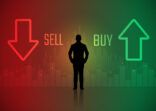Hang Seng Indexes plans to raise the number of stocks in its flagship index from 52 to 80 by mid-2022, and ultimately to fix the total at 100, according to a statement released by the company late on Monday.
The overhaul is one of several changes following a month-long consultation exercise with 60 traders, asset managers and other market participants.
All HSI constituents, including weighted voting rights and secondary-listed stocks, will have their weightings capped at 8% after the June 2021 index rebalancing. Although this will mean reducing the limit from 10% for primary-listed companies, secondary-listed stocks, such as Alibaba, will have their weightings lifted from a current restriction of 5%.
In addition, HSI members will be chosen from seven industry groups, with the aim to have a minimum of 50% market capitalisation coverage of each of them. The groups include: financials, information technology, consumer discretionary and staples, property and construction, utilities and telecommunications, healthcare, and energy, materials, industrials and conglomerates.
More than 80% of respondents surveyed during the consultation backed the expansion of the index to make it more diversified, and 70% supported selecting HSI constituents by industry group to ensure balanced distribution, Hang Seng Indexes said.
It also gained support for capping maximum weightings at 8% and retaining at least some Hong Kong companies in the HSI.
MORE REPRESENTATIVE
“We are supportive of Hang Seng Index’s enhancements in weighting rules and extending the number of stocks covered by the index, which provides a better representation of the Hong Kong stock market as the capital market continues to grow,” Abdelhamid Bizid, Blackrock’s head of iShares product, platform and markets for Asia-Pacific, told FSA.
Blackrock manages two iShares ETFs linked to Hang Seng indexes, the HK$6.12bn ($790m) iShares Hang Seng Tech ETF and the HK$ 275m iShares Core Hang Seng Index ETF.
Ronald Chan, CIO of Chartwell Capital wrote in response to the changes that, “increasing the number of constituents is a good idea, [but] the top 100 largest stocks in Hong Kong account for over 70% of daily trading volume, so the proposed increase may not boost trading volume or give recognition to any hidden gems”.
“Broadening the selection criteria by industry and widening market cap and turnover [also] makes sense because the index was skewed towards the financial sector in the past at around 40%,” he added.
Another reform, which had less widespread support, is the reduction of the listing history requirement for HSI constituents to three months – which itself was a compromise when only 60% were in favour of or indifferent to removing the listing history requirement altogether.
“Reducing the listing history to three months seems a reasonable compromise rather than abolishing it altogether,” said Chan.
“However, we would have preferred a more nuanced approach, balancing protecting investors in highly volatile sectors with company and industry exposure that is evolutionary to reflect the changes that are happening in the real economy around us,” he said.
The Hang Seng stable of indexes cover stocks listed in Hong Kong and mainland China, and they include the Hang Seng Index, the Hang Seng China Enterprises Index and the Hang Seng Tech Index, as well as Stock Connect, Greater Bay Area and sector-related indexes.
As at the end of 2020, AUM in products passively tracking indexes in the Hang Seng indices amounted to $38bn, according to Hang Seng Indexes.

















